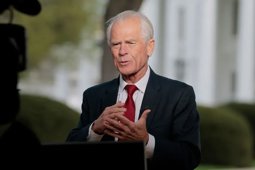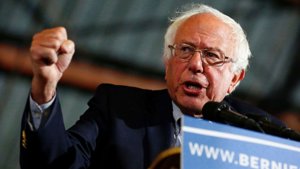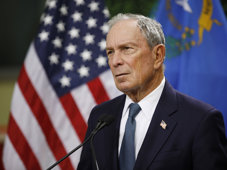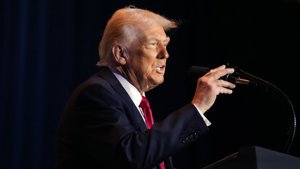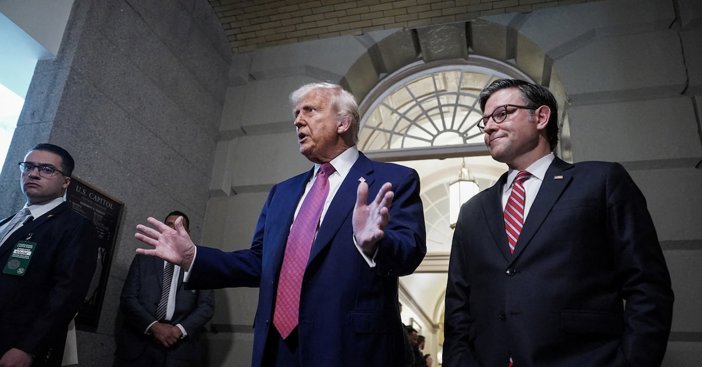
Trump Budget Bill Faces GOP Division
Trump’s “big, beautiful bill” earns support from GOP governors, but House Republicans remain split over SALT and Medicaid issues.
Trump Rallies Republicans, Faces Resistance
President Donald Trump’s latest push to unite Republicans behind his sweeping budget legislation met mixed results on Tuesday, as deep internal divisions continue to stall momentum in the House of Representatives. Dubbed the “One Big, Beautiful Bill,” the package includes reforms on tax policy, Medicaid, immigration, and energy, and aims to advance Trump’s second-term legislative agenda.
During a rare appearance on Capitol Hill, Trump urged GOP lawmakers to rally behind the bill, warning them not to “f--- around” with key provisions such as the state and local tax (SALT) deduction caps and Medicaid reforms. Despite the direct appeal, a bloc of Republican lawmakers—particularly from New York—remains firm in opposition, citing insufficient relief for middle-class taxpayers.
“This is the single biggest issue that I've talked about, and, with all due respect to the president, I'm not budging,” said Rep. Mike Lawler, R-N.Y., referring to the SALT cap. Fellow New York Republicans Nick LaLota and Andrew Garbarino echoed the concerns, arguing that the bill lacks specific measures to address the cap's impact on their constituents.
Trump’s address came as House Speaker Mike Johnson reached a tentative deal with blue state Republicans to raise the SALT cap to $40,000 for households earning under $500,000 annually. The agreement is seen as a critical move to secure votes from moderate Republicans, though it's unclear whether fiscal conservatives will accept the change.
Governors Unite, Conservatives Resist
Meanwhile, support for the legislation has grown among state-level Republicans. A letter signed by 20 GOP governors and delivered to the White House praised the bill as a cornerstone of Trump’s efforts to “restore the security, prosperity, and fiscal sanity of our nation.” The signatories pledged full backing for the bill’s passage, urging Congress to act swiftly.
Despite the backing, divisions remain. Members of the House Freedom Caucus, including Chair Andy Harris, Reps. Eric Burlison and Thomas Massie, have criticized the bill for failing to adequately address waste and fraud within Medicaid. “It does not eliminate waste, fraud and abuse,” Harris said. “I can't support the bill.”
Rep. Chip Roy, a member of the House Rules Committee, did not attend Trump’s meeting but called for a delay in the committee’s 1 a.m. vote, citing unresolved concerns. Some Republicans like Rep. Ralph Norman praised Trump’s message and said he would make a “judgment call” before voting.
Rep. Andy Ogles, R-Tenn., expressed opposition to the bill via social media, stating that liberal states exploit Medicaid at the expense of federal taxpayers and that the bill does not go far enough to enforce work requirements or cut entitlements.
Republicans representing high-cost-of-living districts argue that SALT deduction reform is essential for retaining seats in the 2026 midterms. Conversely, lawmakers from lower-tax states argue that lifting the cap disproportionately benefits wealthy residents of Democrat-run states and reinforces high-tax state policies.
The current legislation, originating from Trump’s 2017 Tax Cuts and Jobs Act, capped SALT deductions at $10,000. Republican leaders’ offer to increase the cap to $30,000 was already rejected by SALT Caucus members before the tentative $40,000 compromise emerged.
Medicaid reform remains another major flashpoint. Conservatives are pushing for accelerated implementation of work requirements, currently set to begin in 2029, and want greater cost-sharing responsibility for states. Moderates, however, warn against aggressive changes that could impact vulnerable populations.
With a razor-thin House majority and no Democratic support anticipated, GOP leaders can afford few defections. A full House vote is expected later this week, but its success hinges on bridging deep divisions within the party.

